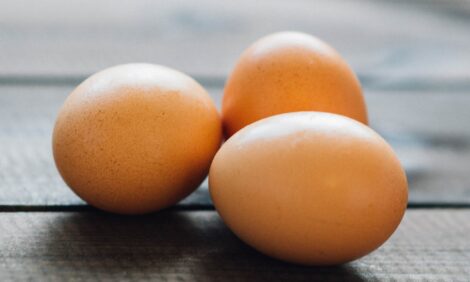



Tainted Egg Yolks Found in Mooncakes
TAIWAN - The yolks of duck eggs from two poultry farms in Yunlin County’s Yuanchang Township that were used in mooncakes were found to contain Sudan IV, a toxic chemical dye, use of which in food is banned, the Council of Agriculture (COA) said, adding that about 7,000 ducks are to be culled.According to Taipei Times, demand for mooncakes rises at this time of the year due to the Mid-Autumn Festival, which is celebrated on the 15th day of the eighth month on the lunar calendar and this year falls on Wednesday next week.
The Food and Drug Administration (FDA) yesterday published the results of tests conducted on 203 mooncakes, which found that mooncakes sold at Tsai Tang Yao in Taichung contained 1.34 milligrams per kilogram of Sudan IV, a reddish-brown chemical dye.
According to the Environmental Protection Administration (EPA), Sudan IV is classified as a Category 3 carcinogen by the International Agency for Research on Cancer.
COA Department of Animal Industry Deputy Director Wang Chung-shu said the tainted egg yolks came from the Yung Hsin and Chang Yin poultry farms, which produce and process duck eggs.
Duck eggs from the two farms were found to contain between 12 and 26 parts per billion of Sudan IV, while ducks had between 196 and 308 parts per billion of Sudan IV, COA data showed.
COA, FDA, EPA and Yunlin County Government officials inspected the two farms on Wednesday and Thursday, and prohibited the removal of any ducks or eggs.
A total of about 7,000 ducks at the two farms are to be culled, because Sudan IV lingers in animal bodies for quite a long time, Wang said, adding that as no residue of the chemical was found on feeding equipment, the farmers might have manually added it into the ducks’ feed.
He emphasized that it was an isolated case, as the FDA has not reported similar incidents in the past three years.
Asked about an uptick in tainted egg scares this year, Wang said some farmers who lack professional training might randomly introduce chemicals to feed based on recommendations from neighbors.
Officials are to issue a recall of the two farms’ eggs and products, but Wang admitted that estimating the actual total would be difficult.
He said the farmers said they produce about 17 boxes, or 3,400 eggs, per day, but did not specify when they started mixing the chemical dye into the feed.
The Yunlin District Prosecutors’ Office has launched an investigation, he added.











